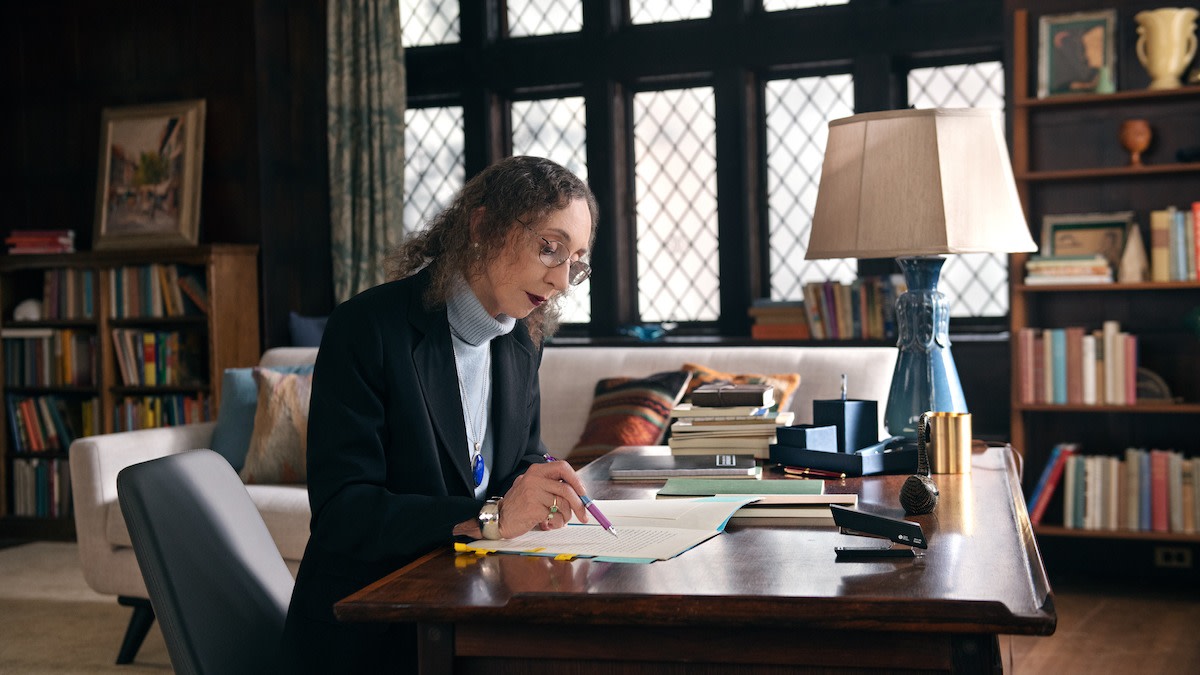Writing
16 Quotes on Writing from Author Joyce Carol Oates
Written by MasterClass
Last updated: Aug 19, 2021 • 3 min read
Bestselling author Joyce Carol Oates has written dozens of novels and thousands of short stories throughout her decades-long career. These Joyce Carol Oates quotes shed some light on how the author approaches the writing process.
Learn From the Best
16 Quotes on Writing From Joyce Carol Oates
If you’re looking for inspiration to start writing, read these quotes from Joyce Carol Oates. As one of the most prolific American writers in history, she has a lot to say about the craft of writing.
- 1. On individuality: “Everybody has at least one story to tell.”
- 2. On interruptions: “The only thing that’s bad for writing is being interrupted. You have to have time to write. And while that seems obvious, you're probably living a life with a lot of interruptions.”
- 3. On unused writing: “Writers are like cooks. They keep everything in the refrigerator and put it all in the casserole. What doesn’t go in for dinner tonight, well, it’s gonna show up next Sunday.”
- 4. On staying engaging: “There's only one rule of show business, or writing. And that's don't be boring.”
- 5. On brevity: “If you can tell a story as briefly as possible, it's more dramatic. If it's too long, then it has the problems of pacing, it could get a little slow. But the shorter you can make a story, the better.”
- 6. On writing from diverse points of view: “It's very important to project your own imagination into someone else—for instance, if you're a fairly young person, to write from the point of view of an older person. It's so much more interesting.”
- 7. On reading: “I would say almost dogmatically that you can't be a writer unless you're reading all the time and reading with purpose.”
- 8. On experimentation: “Writing is a matter of experimentation. And all writers do a lot of revision. So, first you might write a paragraph, and then you might rewrite it, and you might rewrite it again, and then you might write a page. And then basically you keep rewriting to find the rhythm and the voice that's suitable for that story.”
- 9. On building an audience: “I think it's very important for writers, whether young or older, to have an audience—to have people who are sympathetic and supportive, but also fellow writers who have critical ideas and constructive suggestions.”
- 10. On having fun: “I think one of the main things to remember when you're writing is that writing should be pleasurable. It should be fun. It should be exploratory. You should be writing about things that surprise you.”
- 11. On looking within: “Writing is like a spiritual manifestation of something deep within us we don't really know is there.”
- 12. On giving a voice to the oppressed: “Another very strong motive throughout history is bearing witness, particularly for people who can't speak for themselves—writing about people, telling the stories of people who have been muted or silenced or even exterminated, and being the one to tell their stories in some historic forum, or as journalism, or as fiction, or poetry. I think that's a very strong impulse.”
- 13. On playing with structure: “It's very exciting to experiment with structure. I think that many stories are best told in some elliptical way or some unusual way.”
- 14. On journaling: “Keeping a journal sharpens our senses. It's like an exercise in writing. If you're describing a scene, you are practicing the act of writing—which is very important—and thinking in language. Otherwise, you just sort of go through the day with stray thoughts floating around in your head of no particular distinction. But if you're writing things down and really thinking about something and observing, that gives a certain sharpness to your powers of observation.”
- 15. On the necessity of storytelling: “There is an instinct in our species to tell stories. It's a way of explaining the universe and explaining our world.”
- 16. On learning from masters: “You may want to read Faulkner, Hemingway, James Joyce, Kafka, Thomas Mann, Virginia Woolf. You may want to aim very high because the more you read and the more you're absorbing. When you start to write, you're gonna write on a higher level than you would be if you didn't read these people. It's like the old saying, ‘If you want to learn how to play tennis, you play tennis with somebody who is better than you.’”
Want to Learn More About Writing?
Become a better writer with the MasterClass Annual Membership. Gain access to exclusive video lessons taught by literary masters, including Joyce Carol Oates, Dan Brown, and more.
